A few minutes into our first conversation, Charlie Engle confesses to me a deep-seated fear. His time on earth is getting shorter, he says. He feels an increasing sense of urgency. “I need to see more,” he tells me over the phone while walking near his home in Durham, North Carolina. “I need to experience more.”
It doesn’t take much to get Engle to spill this kind of emotional lava. It’s all right there on the surface. This kind of radical candor has literally become the way that he makes his living these days, stripping himself clean – “dumping all my shit out on stage,” as he puts it – during public speeches, some of them in front of influential audiences of business tycoons and billionaires. “If you could sort of point toward one word that I think is very impactful for me,” he says, “that's vulnerability.”
The fears Engle expresses may seem typical for a man who turned 60. But Charlie Engle is nowhere near a typical 60-year-old man. He has already seen more and experienced more than nearly any other ultrarunner and adventure racers of his generation; he is one of the only men to run pretty much the entirety of the Sahara Desert in a single expedition. He has literally run so far and so often and so steadily over the course of his life that some of the most wealthy and powerful people on the planet look to him for advice on how to find happiness.
So what does it say about a man who has accomplished so much that he could still feel like he’s somehow not done enough?
“I guess we all have that fear, right?” he says. “There’s like 20 more countries I want to run across. There’s all these things, and I know in all likelihood that I’m not going to have time to do all of them. So the fear is more around being able to complete things than it is about the suffering they cause. I’d like to set an example that being 60 years old is irrelevant in this case.”
Here is the first thing you have to understand about Charlie Engle: He is a man who is constantly in motion, both literally and metaphorically. He runs until he feels like he cannot run anymore, and then he keeps going. It is not the cause of his suffering; it is how he copes with his suffering, the ups and downs of a life replete with interactions with movie stars and celebrities, and a life marked by failure and disappointment, by drug use and divorce and a stint in federal prison that seemed more driven by an odd personal grudge from an IRS agent than by the crime itself.
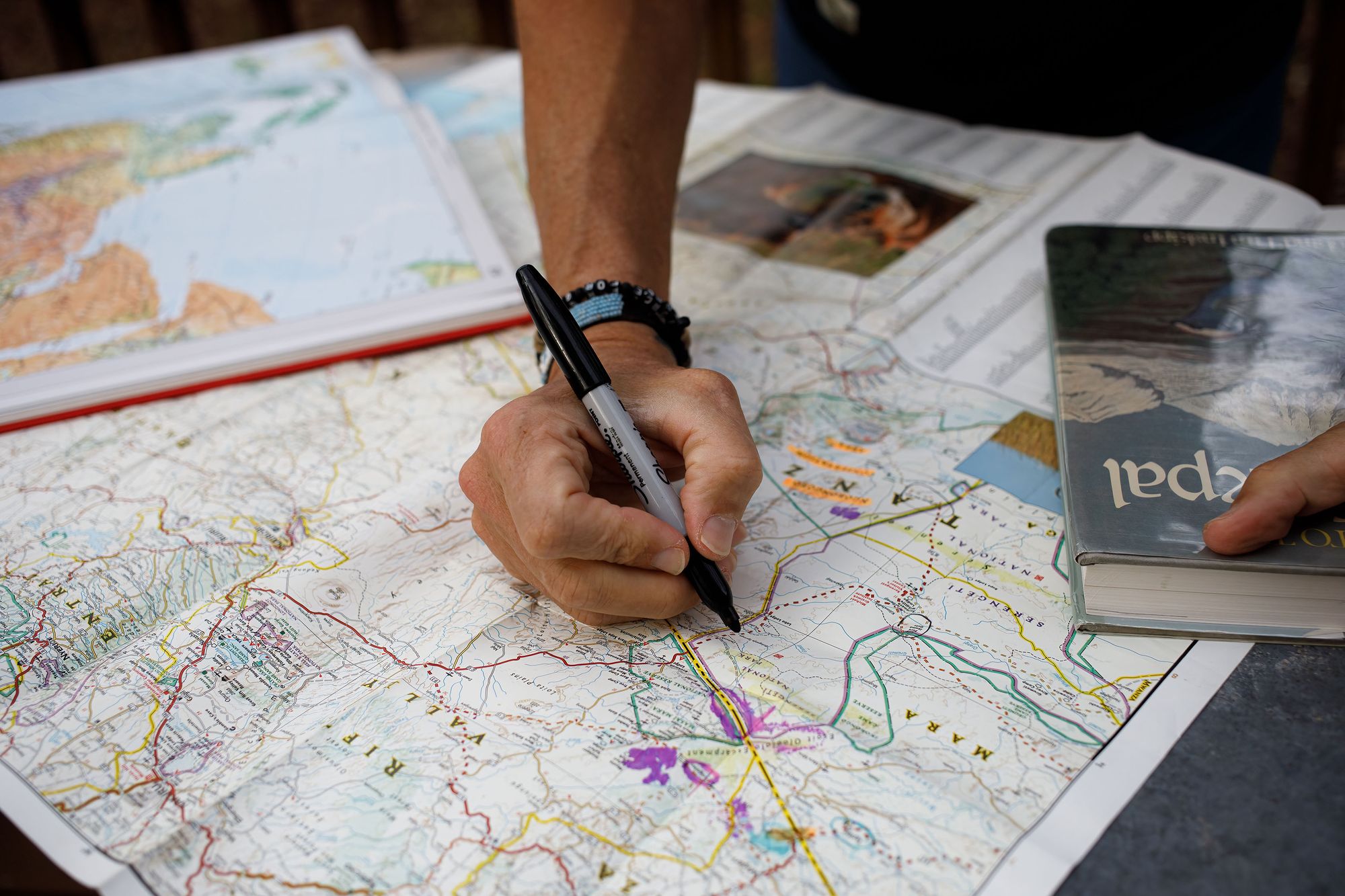
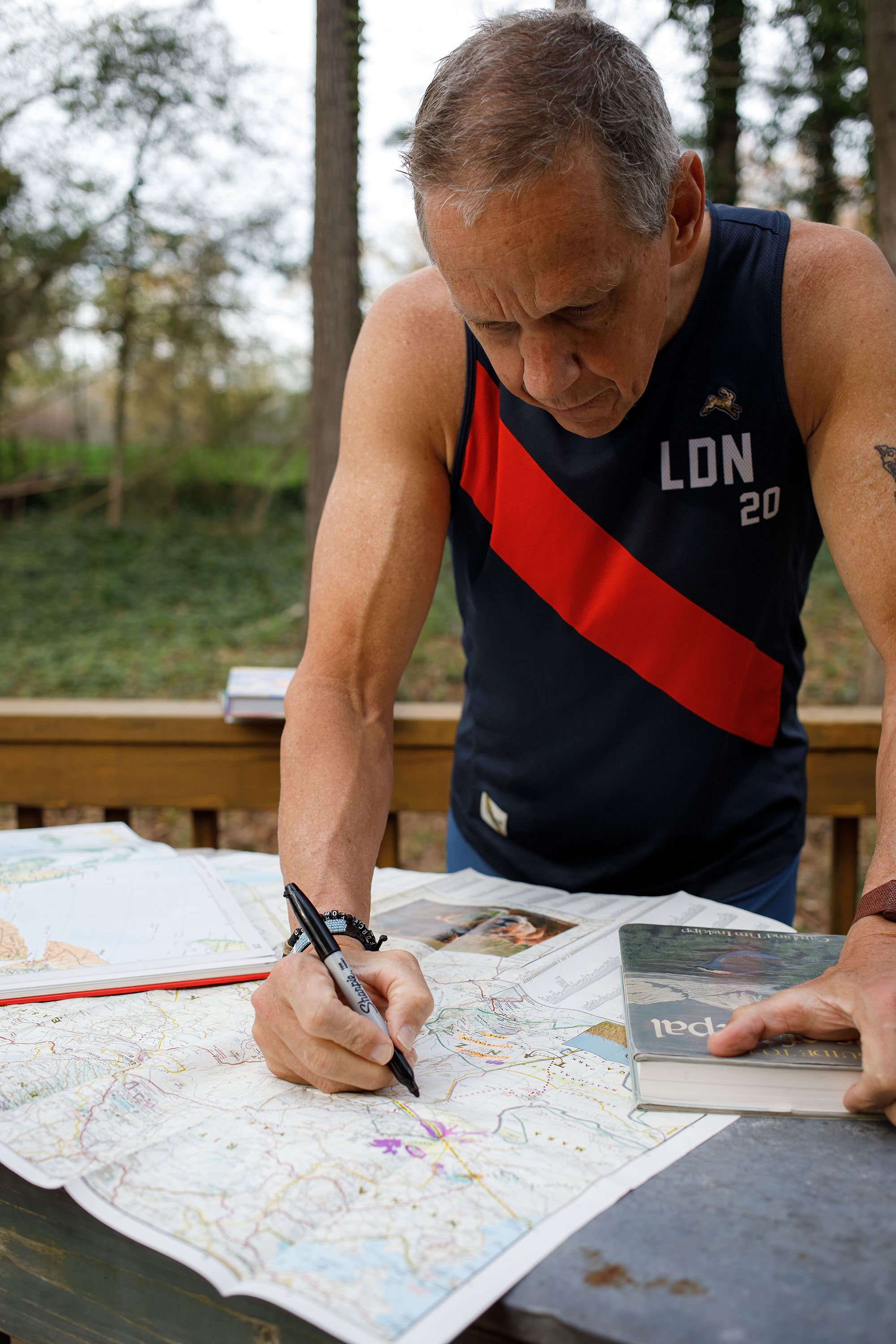
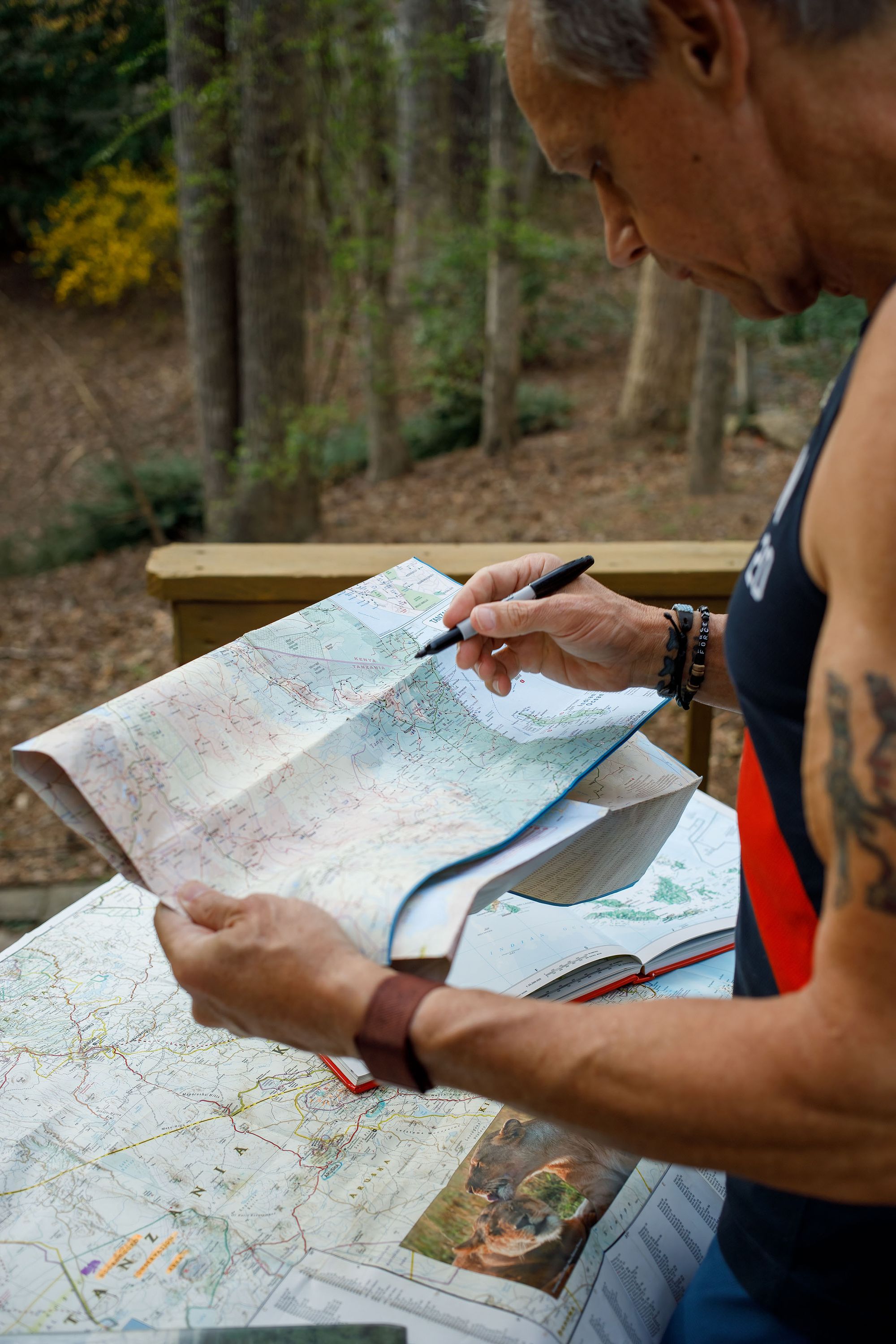
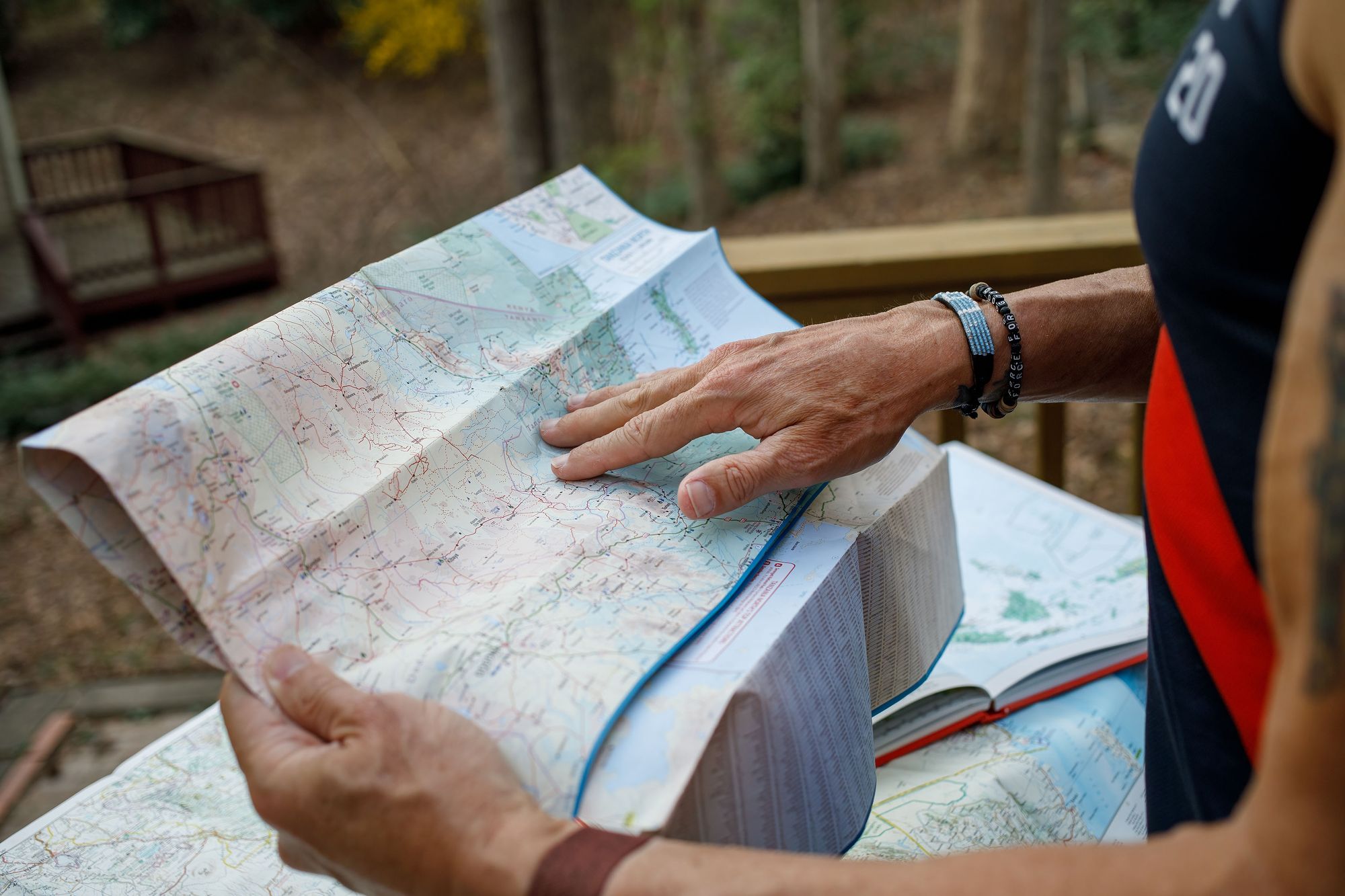
Always searching, Charlie Engle is planning his biggest adventure yet. [Ben McKeown photos]
When Engle first started talking to a therapist, he found that the only way he could speak honestly was to do it over the phone while he walked in nature. After he finished the final six-day crack binge that led him into recovery over 30 years ago, he went for a forty-minute run before attending three Alcoholics Anonymous meetings in one day. When he and two fellow runners worked their way across the Sahara desert while being trailed by a documentary filmmaker, Engle kept running roughly fifty miles a day even as a blister the size of a baseball swelled up on his foot. During his time in prison in West Virginia, he would wend his way around and around a pocked quarter-mile track over and over again, day turning into night, until his fellow inmates began to refer to him as “Running Man.”
Motion is the one constant in his life, and this is why, even as Engle’s body begins to show the natural effects of his age, he cannot seem to stop moving. One day, when he went for a run with movie star Matt Damon, one of the producers of the documentary featuring him called Running the Sahara, he told Damon that he had to reconfigure his relationship to pain, to learn to embrace the suffering. Because to Engle, stopping is suffering.
Some men would take the balky knees and the aching hips as a hint that it's time to at least slow their pace. But Engle lives his life from the inside-out. He embraces the pain. He thrives within the pain. And now he spends his time sharing the wisdom of his own pain with others. When we talk again over Zoom, as Engle pedals slowly on an exercise bike inside his house, he’s a few days removed from speaking at a conference on Richard Branson’s private island. And he’s preparing to speak at another conference of wealthy and influential executives in Aspen, CO.
“Billionaires are scared, too,” Engle says. “And I find there's the assumption looking at those kinds of people from the outside, that they've solved the puzzle of life, and that any puzzle they haven't solved, they can just, you know, pay somebody else to solve it for them. But they all have the same problems, addiction, mental health issues, family crisis personalities. And a lot of them have been very successful in business and they've built huge brands, but they quite often have ignored their own personal growth.”
In that way, they can look in the mirror and see the opposite in Engle, a man who is deathly afraid of no longer growing – a man who actually fears a life devoid of fear. That’s why Engle’s planning, starting in early 2024, to achieve yet another goal that most men would find patently insane: He is going to make his way from the lowest point in Asia, the Dead Sea, all the way to the highest point in Asia, the summit of Mount Everest. Alongside endurance athlete Dean Karnazes, he’ll travel thousands of miles by boat, by bike, and, of course, on foot, while attempting a 100-foot free dive in the Dead Sea just for fun. And then, when he finishes with that journey, he hopes to run from the low point to the high point on every other continent in the world.
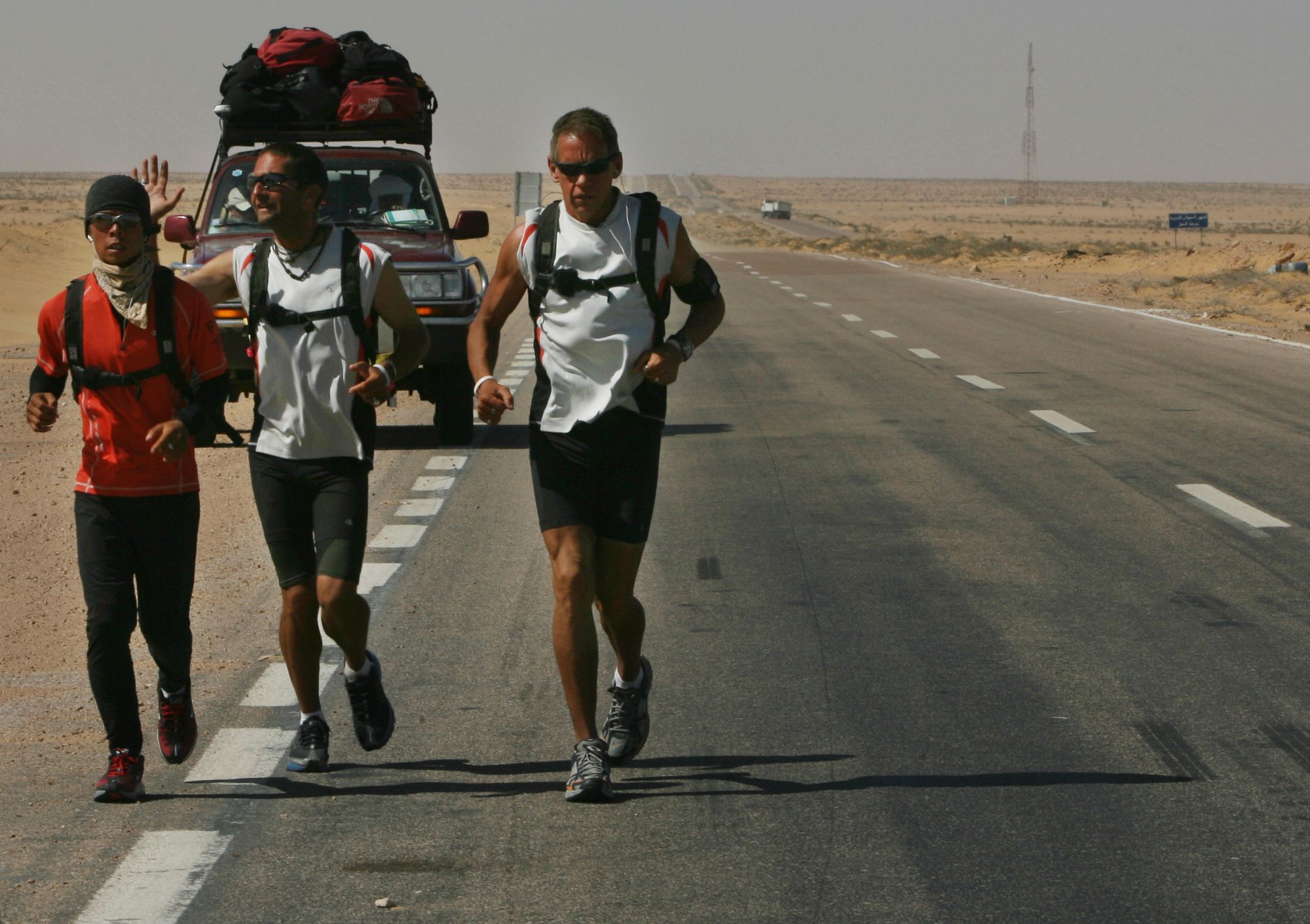
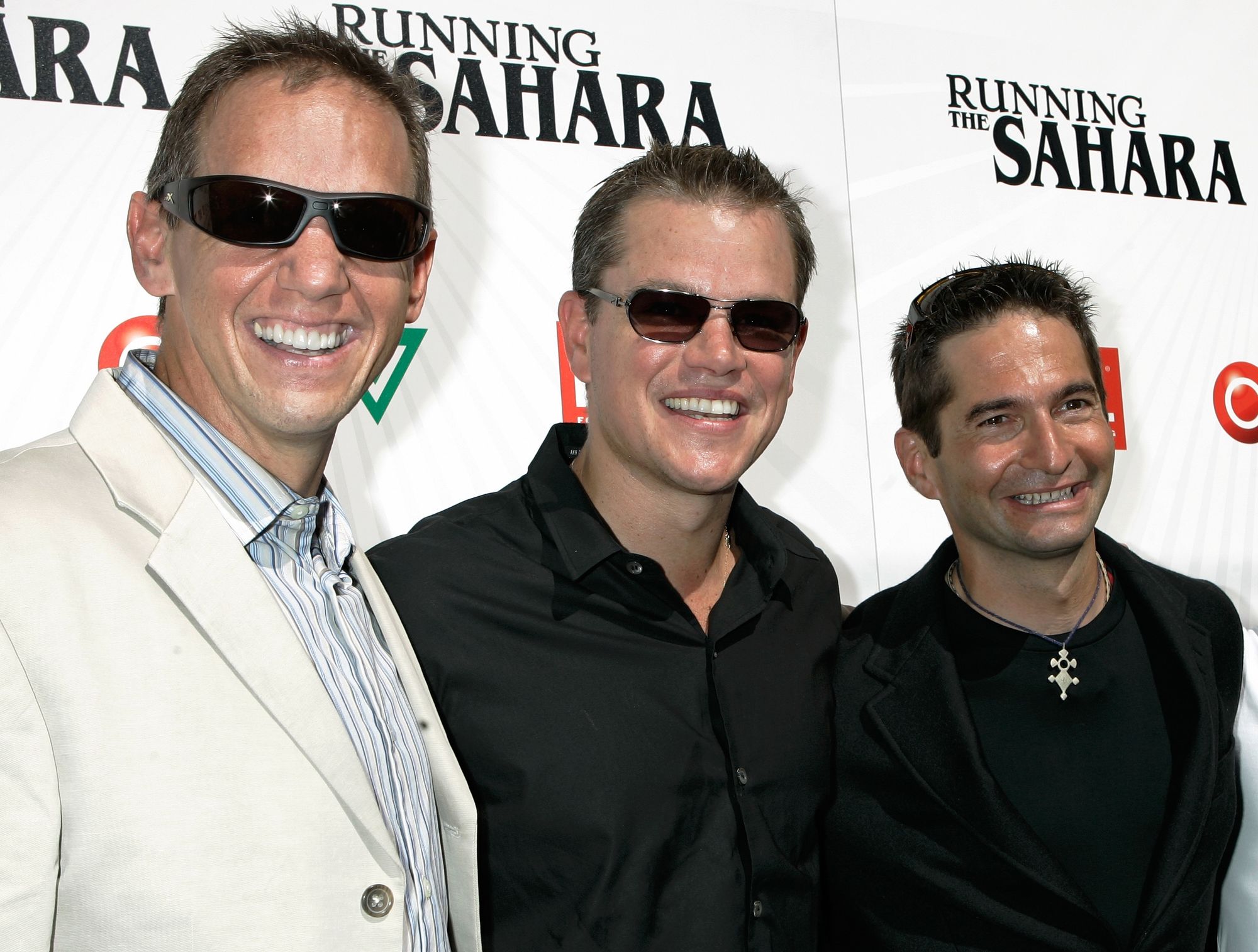
"Running the Sahara" was a 2007 documentary narrated by Matt Damon. It followed Charlie and his running mates as they traversed the Sahara. [AP photos]
The metaphor for this quest is relatively obvious: Engle has endured high moments in life and low moments in life, attaining a measure of fame for his endurance as he’s battled addiction and served time. Even now, as his public-speaking career has taken off to new levels, he is caring for a wife whose battle against cancer has extended on for years. And the only way that he knows how to get through it is to keep moving, to keep pushing, to bathe himself so fully in his own pain that it washes him clean again. Because what he’s found, over the course of half a lifetime, is that the pain can actually bring him closer to the answers.
“Running for me, especially in the early years after I got sober, was my quickest way to bring pain to myself,” Engle says. “It was like, I can go out the door right now and in five minutes I can be in physical distress, because I know of almost no other sport that, you know, if you go hard enough, you can bring that sort of pain. And I wanted that pain early on in my recovery, and it took me a long time to figure out that there were other ways for me to use running instead of just as a mechanism for suffering. That took a while.”
In a lot of ways, Engle’s story is a quintessentially American tale of lasting endurance in the face of adversity. Engle grew up a child of divorce, his mother a poet and artist; in his memoir, Running Man, Engle describes himself as “a free-range kid.”
In time, Engle moved out to stay with his father in California, where he played football and ran cross-country. When he started going on drinking and cocaine binges at the University of North Carolina, he’d pay his penance by slipping out the door of his frat house and run lap after lap on the track until he vomited into the nearby bushes. After a series of harrowing experiences in his twenties and early thirties, Engle went to rehab, then relapsed, then went to rehab again. He got married, had the first of two children, and ran a series of marathons. One day, he signed up for what he thought was an easy five-kilometer race before realizing it was actually a fifty-two kilometer race. He won the men’s division, and began to wonder: How much farther can I go?
Engle entered adventure races. He thrived on both the adrenaline and the suffering. He gained a following both for his bravery, and his willingness to share his own catharses. Soon after, he came up with the idea to run the entire Sahara Desert, and after being featured in the 2008 documentary Running the Sahara, he became an ultrarunning celebrity, though much of the climax of the movie features Engle driving his fellow runners and the crew to the breaking point in order to finish the run.
“I forgot a lot of the lessons that I learned in (Alcoholics Anonymous), namely the most famous mantra being, ‘One day at a time,’” he says now. “I felt so much pressure because there were millions of dollars invested. There were a ton of people who've given a huge chunk of their life to this project. All I could think about was the finish. All I could focus on was getting to the end and making it okay that I asked so much of so many people, and I forgot the lesson that the only miles I could run were the ones in front of me.”
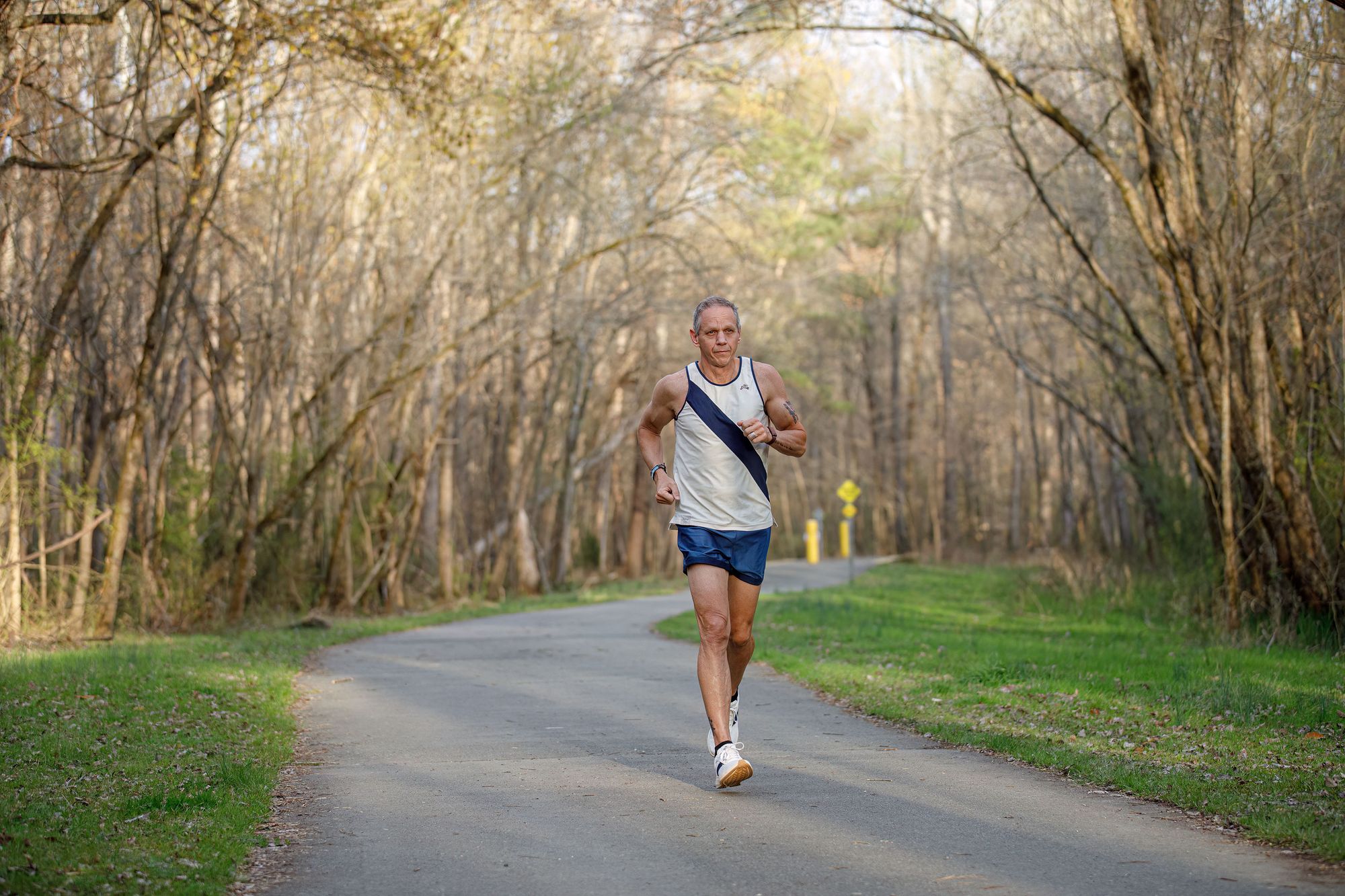
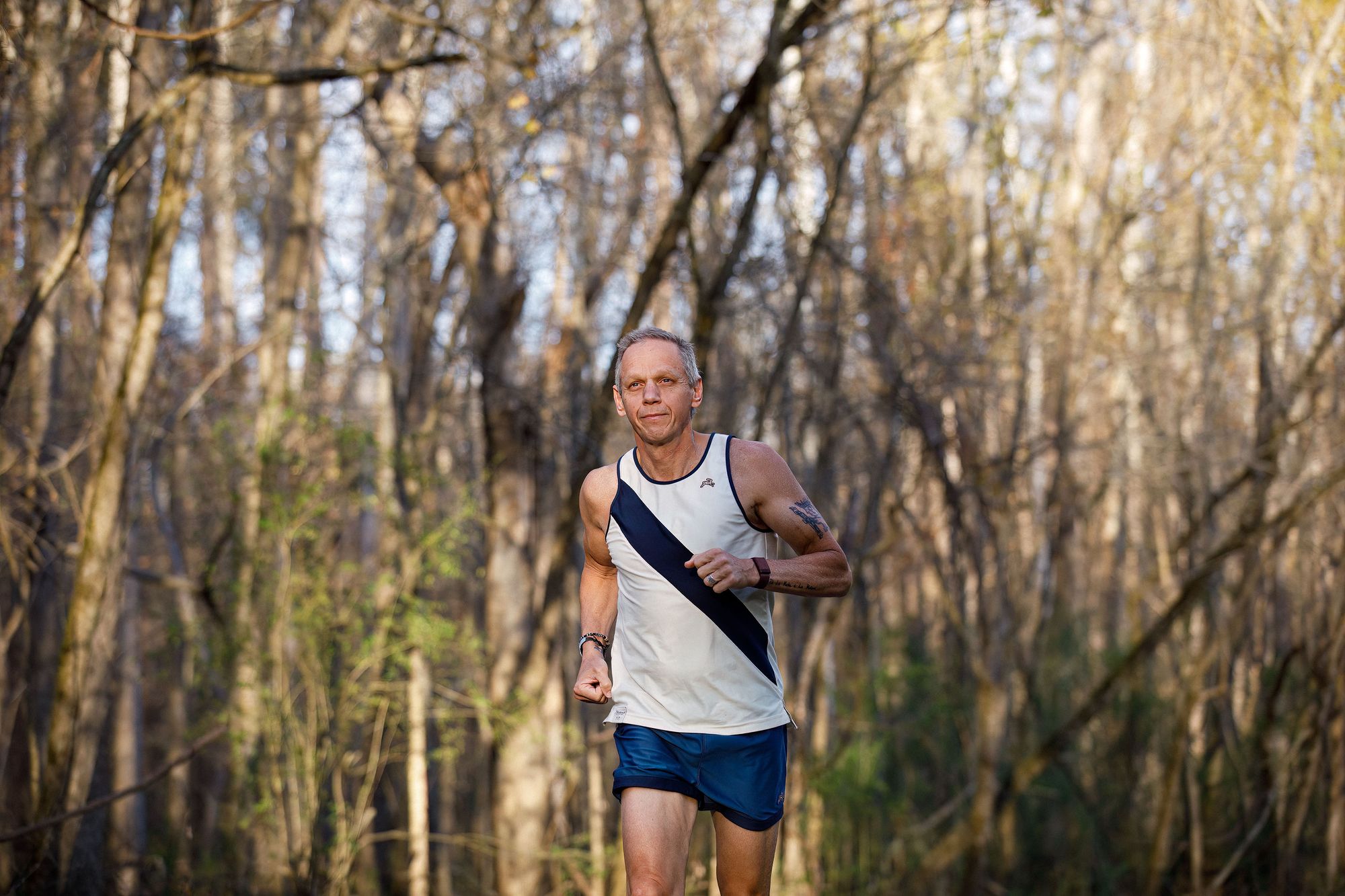
Charlie Engle trains near his home in North Carolina. [Ben McKeown photos]
In the aftermath, Engle’s story took another sharp dip downward, because even as that documentary brought him fame and opportunity, it also brought him scrutiny. An IRS investigator watched the film, took in Engle’s occasionally off-putting behavior on screen, and wondered to himself, How does this guy make his money? At lunch with an undercover IRS agent, Engle admitted that his mortgage brokers may have lied about his income in some real-estate deals he’d made. And as the subprime mortgage crisis crashed the economy in the late 2000s, around the same time as Running the Sahara’s release, Engle’s life came crashing down, as well. On Valentine’s Day of 2011, Engle began serving time in a federal prison in Beaver, West Virginia, for mortgage fraud. He was released in June of 2012, a few months before his 50th birthday.
It was yet another remarkable twist in Engle’s story: By getting frustrated at things not going as planned in that documentary, Engle found his life sinking into another deep chasm he could not have possibly foreseen.
“I actually think that that's the beauty of life in a way,” Engle says. “Who we are as individuals can't really be revealed until everything falls apart.”
Those first few months in prison nearly broke Engle. As he wrestled with the unfairness of his own situation inside that prison, outside the walls, New York Times columnist Joe Nocera took up Engle’s cause.
“He’d clearly been targeted by an agent of the Internal Revenue Service who seemed offended that Charlie was an ultramarathoner without a steady day job,” Nocera wrote. “It seemed incredible to me that with all the fraud that took place during the housing bubble, the Justice Department was focusing not on the banks that had issued the fraudulent loans, but rather on those who had taken out the loans.”
As the weeks passed in prison, Engle, recovering from knee surgery, did the only thing he know how to do: He started running again. Around and around the facility’s shoddy track, to the point of exhaustion, day after day. “I am a very forceful person who wants to force things to happen,” he says. “But I do believe that, in a weird way, prison taught me patience. I had to get over the question of fairness. It was embarrassing to me to think about how unfairly I had been treated when I'm sitting next to a guy who got twenty years for a single gram of crack cocaine. I realized that my happiness was completely up to me.”
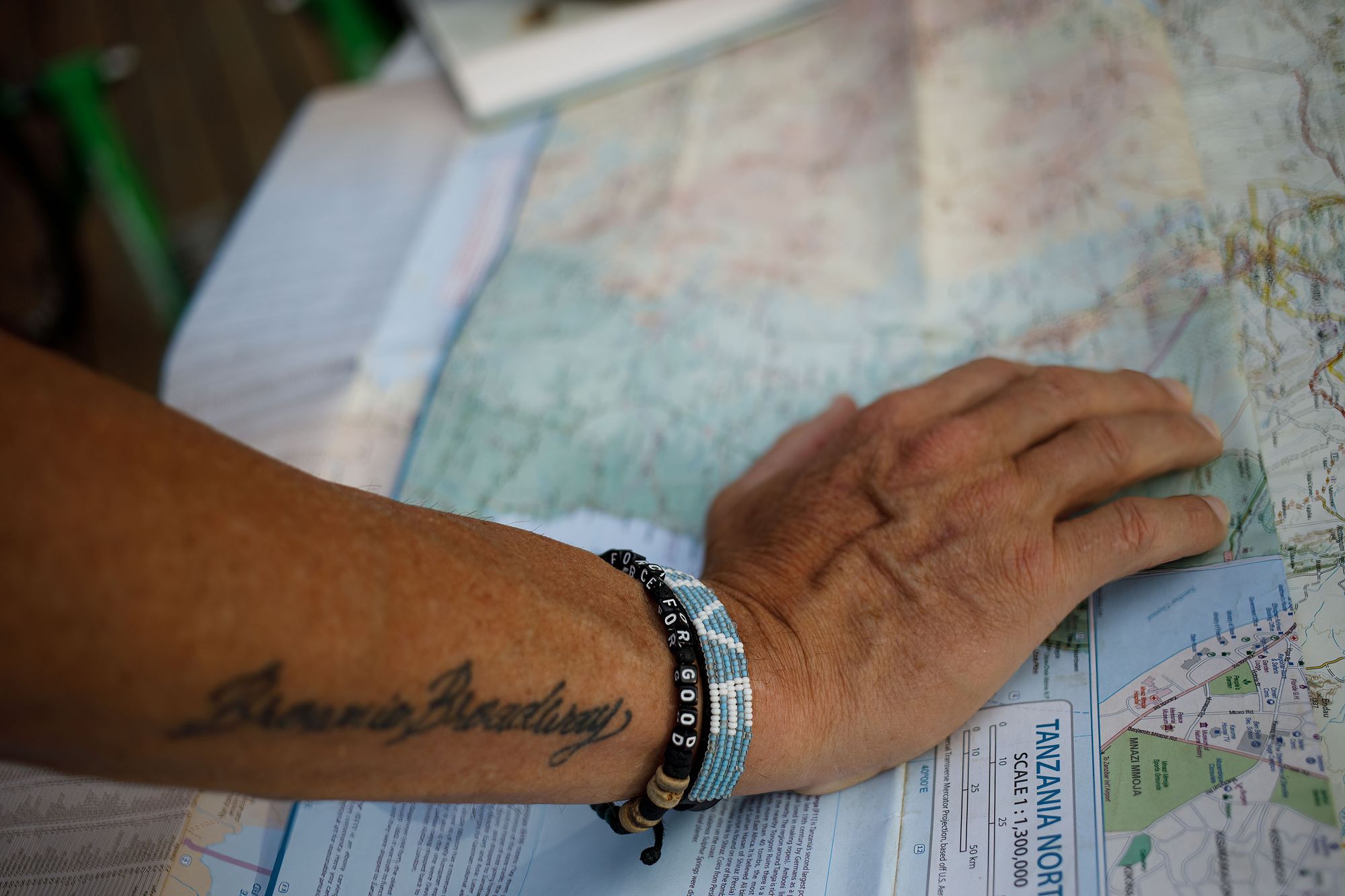
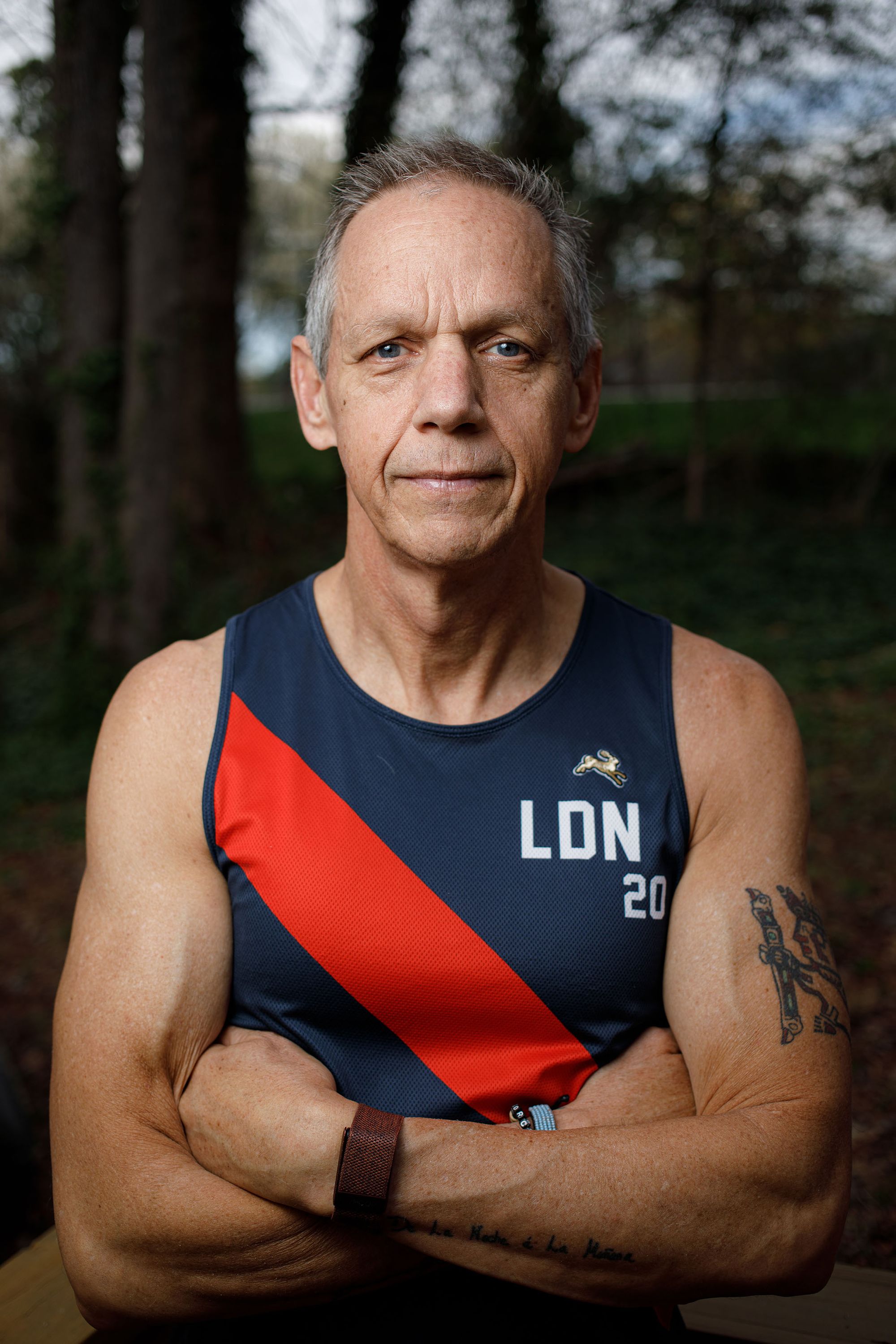
Charlie Engle wants to be a force for good. His next adventure is literally from the lowest point on the planet to the highest. [Ben McKeown photos]
During those long days in prison, Engle came to understand his own symbiosis between suffering and happiness. He came to understand that by spilling his guts to others, he could help them – while also helping himself. And in his cell, he came up with the idea for a new quest: To journey from the lowest point to the highest point on every continent. To essentially run the arc of his life.
“I actually spend a lot of time telling people that we make big decisions at low moments,” Engle says. “We leave our marriage, we quit our job, we relapse, we do all these things when we hit a bottom. And we take that terrible moment and project it into the future. My mind tells me that every moment from this point forward is gonna feel just like this. It's going to be terrible, whether it’s physical or emotional. And the reality is, it isn't. If you just can take a few deep breaths–as a runner, I know that I need to eat, I need to drink, I need to maybe walk instead of run for a minute. And my pain level will go from a ten down to an eight. But that's a huge difference when you're in the midst of it. And all of a sudden, you have hope again.”
It’s been nearly a dozen years since Engle dreamed up this new challenge–he calls it the 5.8, because the Dead Sea and Mount Everest are only separated by 5.8 vertical miles, and “every person on the planet lives within this tiny sliver of atmosphere.” In that time, his life has again shifted dramatically. Soon after getting out of prison, while working out at his local gym, he met Astacianna, the woman who would become his second wife. She was an athlete and adventurer, too; she’d also been through her share of suffering from the effects of dozens of surgeries for childhood cancer and other health problems.
The attention from Nocera and others helped Engle emerge from prison with new opportunities. People wanted to hear what he had to say. They wanted to see what he would do next, and how he would grit his way through it, and perhaps most of all, how he had persevered. After Engle published his memoir, Running Man, in 2016, he agreed to accept every speaking engagement that came his way. That led him to make connections with powerful folks, like Richard Branson, who connected with his personal story.
Six years ago, Astacianna’s cancer returned, and Engle put off his preparation to help with her care. Then the COVID pandemic pushed the date back further. But it appears that he’s finally ready to do it early next year. He’s lined up sponsors; he’s found a cause through an organization called Aerial Recovery, which recruits former U.S. special-military operators to combat human-trafficking in many of the regions he’ll be traveling through. And he’s found that many of those ex-soldiers who suffer through PTSD are willing to share their vulnerability with him because he’s so candid with them, including one who was moments away from suicide before a glimpse of his puppy snapped him out of it.
“All I did was listen to him and hug him and cry,” Engle says. “And I’m about to cry now thinking about it. But when you say these things out loud, they lose their power. And if you shove them further down inside you, they’ll eventually do damage. And so my role, as I see it, is to help other people not do that damage to themselves.”
This is why Engle confesses his fears to me, and to anyone else who asks. By putting it out there, he figures, it loses its power. And so he admits to me his fear about this journey, which is that when the time comes, his body will break down. In order to keep it in shape, he flies to Costa Rica for stem-cell injections into his knees. He does hot yoga and deep breathwork and ice plunges for recovery. He emphasizes sleep far more than he did when he was younger. He prepares however he can; but he also knows that, at some level, all the preparation in the world can only get you so far.
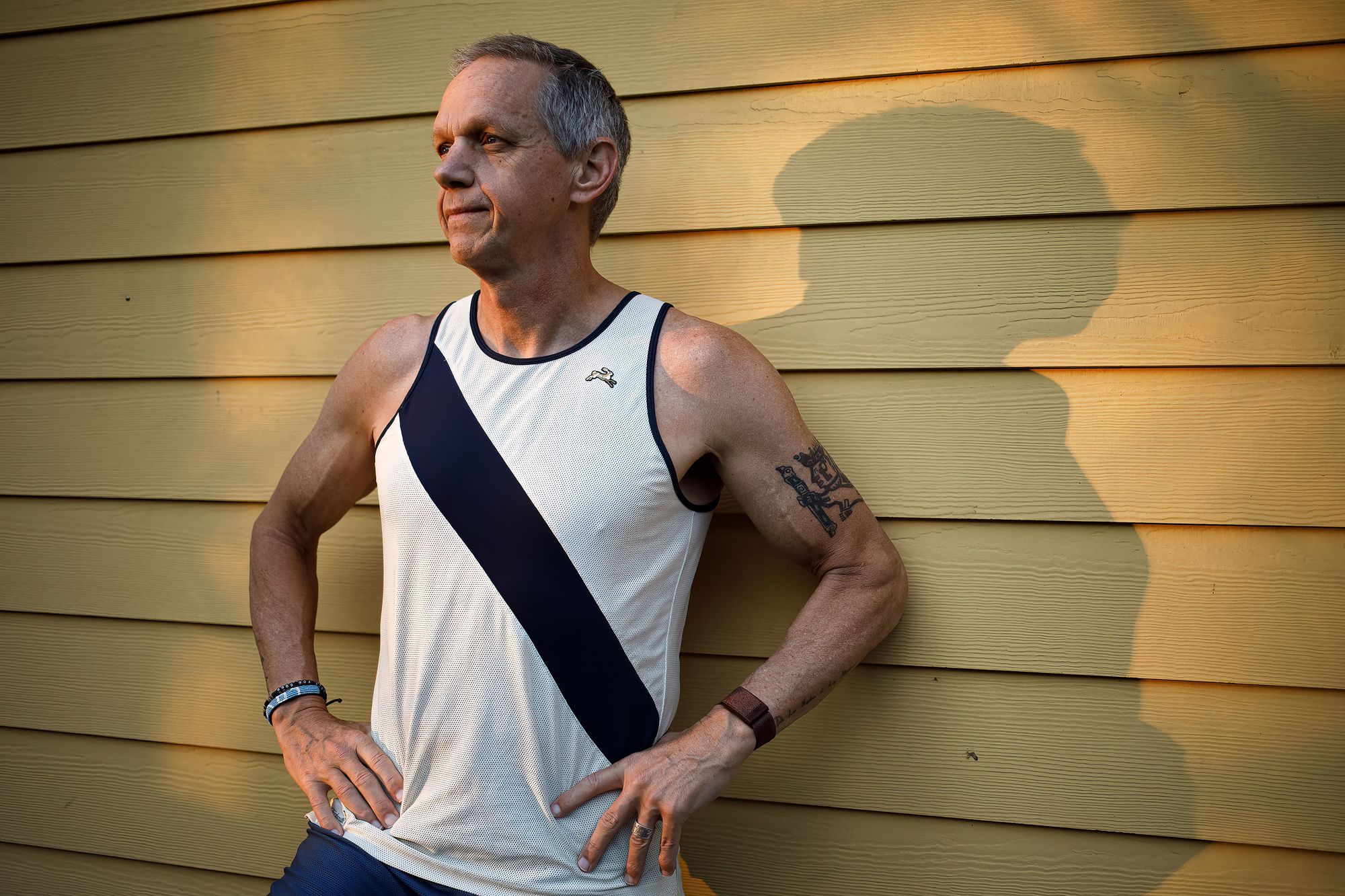
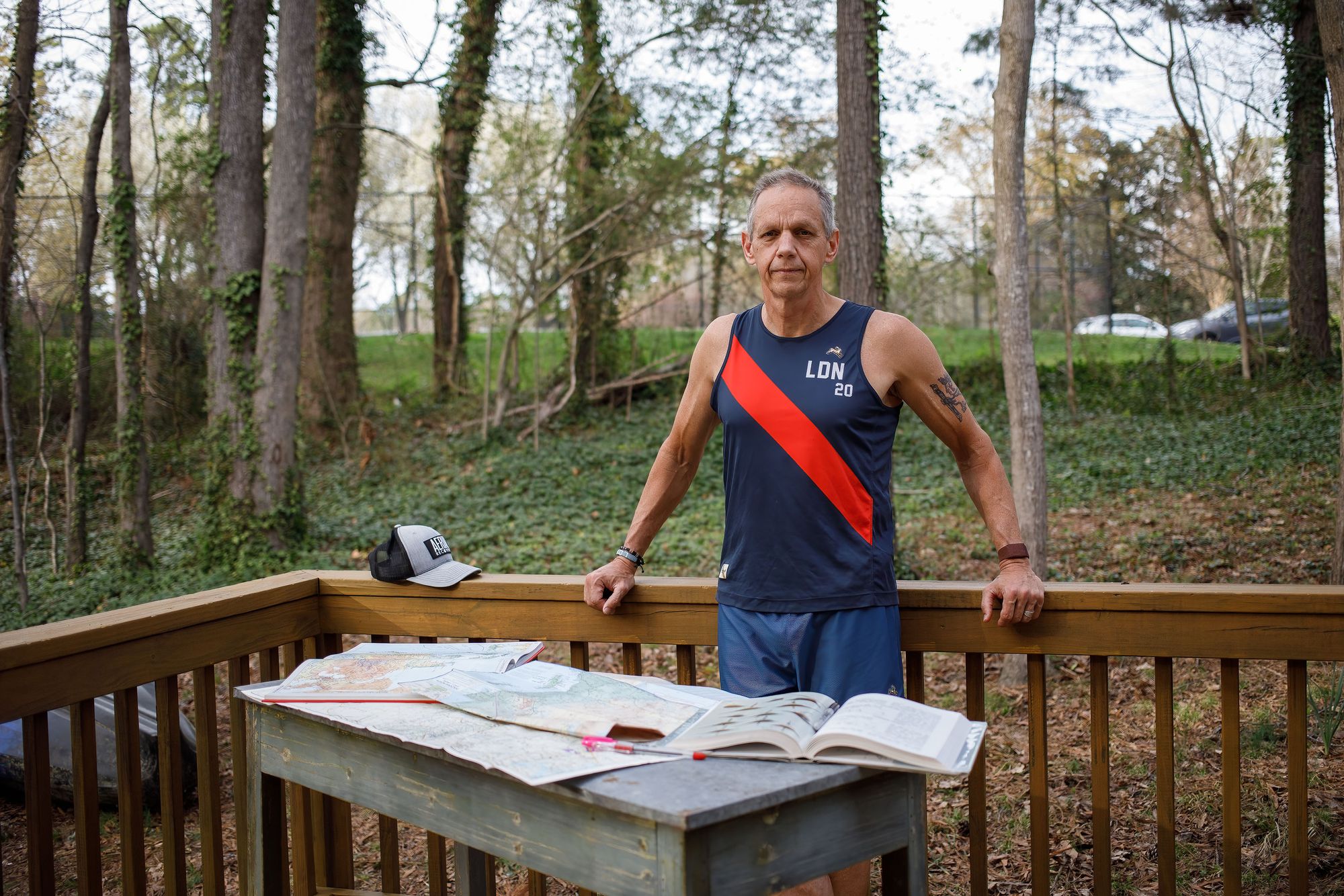
There's so much more Charle Engle wants to accomplish. [Ben McKeown photos]
“You can start a business, you can start a family, you can start an adventure, and you think you know what the journey is going to be like,” Engle says. “And every person I ever talk to says that it never turns out the way that they thought it would. And that doesn't mean that they don't ultimately end up in the same place, but how they get there looks nothing like what they expected. And that’s the beauty of a big adventure. You can guarantee it's not going to go the way you planned it.
“What's funny is I'm not actually afraid of the pain, or the suffering, or the challenge of the actual expedition. I've done this enough that I know that's where the good stuff is, you know? And so that's the payoff, the bonus. That's not the hard part.”
I ask him if he’s embraced that uncertainty, and I ask him how it relates to the question he gets from nearly everyone he speaks to: Why do you do these things? And why do you feel the need to keep doing them?
“I’ve not only embraced the uncertainty – that is the why now,” he says. “I've evolved to this place where I understand that in any journey, the why is only revealed while you're in the middle of it.”